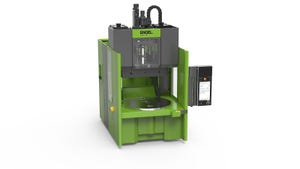Bayer MaterialScience introduces biobased PU for fashion and footwear
Bayer MaterialScience is introducing a range of waterborne, bio-based polyurethane (PU) dispersions for textile applications under the Impranil eco name. The new products boast a renewable content that can reach up to 65% due to the use of bio-succinic acid, which Bayer MaterialScience is sourcing from industrial biotechnology company BioAmber.
April 28, 2015
Bayer MaterialScience is introducing a range of waterborne, bio-based polyurethane (PU) dispersions for textile applications under the Impranil eco name. The new products boast a renewable content that can reach up to 65% due to the use of bio-succinic acid, which Bayer MaterialScience is sourcing from industrial biotechnology company BioAmber.
 "Sustainability is becoming a purchasing decision criterion for consumers and is high on the agenda for the textiles industry," said Nicholas Smith, Global Head of Textile Coating at Bayer MaterialScience. He added that the first products in the Impranil eco series were developed especially for use in fashion apparel, accessory and footwear applications, to "support players in this sector in their efforts toward greater sustainability."
"Sustainability is becoming a purchasing decision criterion for consumers and is high on the agenda for the textiles industry," said Nicholas Smith, Global Head of Textile Coating at Bayer MaterialScience. He added that the first products in the Impranil eco series were developed especially for use in fashion apparel, accessory and footwear applications, to "support players in this sector in their efforts toward greater sustainability."
BioAmber has been working for more than five years on the use of bio-succinic acid in polyurethanes. Bio-succinic acid can replace adipic acid in applications such as synthetic leather, wood and metal coatings, elastomers and foams. Current adipic acid use in polyurethanes is 25% of the 3-million-ton global market, representing 750,000 tons of annual consumption. This market for bio-succinic acid is poised for rapid growth as manufacturers seek to increase the renewable content in their products by using more bio-based polyurethanes.
"Through formulation expertise and innovation, Bayer MaterialScience has shown that greener, more sustainable solutions can match the performance of existing products and be true drop-ins," said Babette Pettersen, BioAmber Chief Commercial Officer.
She added: "With our 30,000-ton-plant now being commissioned in Sarnia, we will reliably supply bio-succinic acid to customers spanning the polyurethane, paints and coatings, personal and home care, plastics and food markets."
For Bayer MaterialScience, collaboration, both upstream as well as downstream in the value chain is becoming increasing crucial for what Smith called "disruptive innovation."
"For the renewable raw materials for Impranil eco, we are happy to have partnered with the company BioAmber, a technology leader that will provide a reliable supply of these precursors in sufficient scale," he said.
Penetration of the polyurethanes market is part of BioAmber's broader strategy to accelerate the adoption of green chemistry in existing petrochemical supply chains. In 2014 BioAmber was selected as one of the top-ten green chemistry innovators by LAUNCH, an organization established by NASA, NIKE, the U.S. Department of State and the U.S. Agency for International Development. LAUNCH was created to identify and foster breakthrough solutions to create a more sustainable world, and aims to move beyond incremental change and make impact at a system-wide level.
About the Author(s)
You May Also Like


